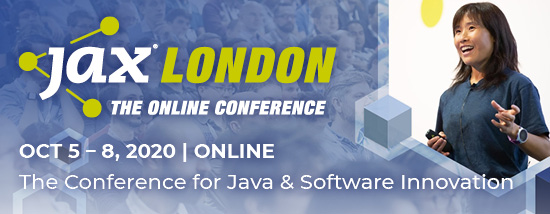A research study by The National Center for Women & Information Technology showed that “gender diversity has specific benefits in technology settings,” which could explain why tech companies have started to invest in initiatives that aim to boost the number of female applicants, recruit them in a more effective way, retain them for longer, and give them the opportunity to advance. But is it enough?
Two years ago, we launched a diversity series aimed at bringing the most inspirational and powerful women in the tech scene to your attention. Today, we’d like you to meet
Today’s Women in Tech: Shani Gal, Director of Product Management at Snyk

Shani Gal
At the age of 18, Shani entered military service in Israel and ended up in the Israeli Intelligence Service. There she discovered her enthusiasm for technology and was, among other things, a team leader in the research area. After her military service, she went through several positions in the tech field with the Israeli government; Senior Technology and Intelligence Researcher, Software Engineer, Cyber Product Manager, and finally Director of Cyber Opsec. In 2019, Shani joined Snyk, an open source security platform, and is now Director of Product Management.
What first got you interested in tech?
I come from a family of doctors. So the most obvious thing would have been to become a doctor too, like my father, my grandparents, and almost everyone else in my family. But I realized that what fascinates me most is understanding how things work from the ground up. We don’t know that with the human body, but we do with computers. The most interesting class I took in college was called “From NAND to Tetris” – it was like a journey from electrical circuits to a complete operating system. I just love getting to the bottom of things.
I already attended university lectures when I was still in high school and learned a lot about math and computer science there. At 18, we all join the army in Israel. I was in an elite unit with a technical orientation and received further technological training there. During my military service, I discovered my enthusiasm for cyber security. In the army, you can’t choose where you go, so you encounter new challenges there.
After graduating in Computer Science and Business Administration, I started as a developer and worked in security research. For a long time, I wasn’t sure what I wanted to be – an analyst, a researcher, or maybe a developer after all? Then I got to know about Product Management and was able to use all of my previous experience there. That is the reason why I have been working for Snyk for one and a half years, where I look after the security products.
Did you receive support from your family and friends?
I didn’t have a specific role model. I think we can, and should, learn from everyone around us. Over the years, I have looked for different sources of inspiration to make my dreams come true. But my family and friends have definitely been a very big support. They have encouraged me that I can do anything I want and that I can take any path. This experience has had a very positive impact on me.
Could you name a few challenges (or obstacles) women in tech face?
I did already experience a few challenges. At first glance, it looks like women have the same opportunities as men. Here is an example: Pretty early on in my career, I had a boss who told me that I had to act differently than my male teammates. I had several meetings with executives where my appearance was brought up in an unacceptable way. In a job interview, I was once asked to promise not to get pregnant.
And I’ve had far too many experiences where the gender pay gap is real. Some women have such experiences, but I think such cases are thankfully somewhat rare these days. And nowadays there are also fewer hurdles for women if they want to get a foothold in the IT industry.
How does your typical work day look like?
I am the Director of Product Management at Snyk and lead a team of Product Managers, who work to ensure that we provide the best security database for Snyk’s and others’ solutions.
In my work, I develop strategies for our future product direction on the one hand and on the other hand, I make sure that we are moving forward with our current work as planned. It is also very important to me that employees feel comfortable and get on well with their tasks. My STEM education is an important foundation for this. I’ve already mentioned how important it is for me to understand things from the ground up.
Without my background in IT security and programming, I wouldn’t be able to comprehend the challenges that arise for our customers, who in our case are developers, and for our team and fellow developers, and analysts as comprehensively as I do.
What are you most proud of in your career?
A few years ago, when I was still working for the government, I led a team of engineers, scientists, and analysts and we worked together on a very complex technical task. For this, we jointly won the prestigious Israeli Defense Prize. This prize is awarded every year by the Israeli president to selected projects.
That was a great experience. You get caught up so often in everyday life, so you forget to enjoy your own successes. Participating in the ceremony with the president made me very proud, and I felt honored to have been able to play my part in this group.
Why aren’t there more women in tech?
The pace in the tech industry is high and simple, short-term, and efficient solutions are often required. Hiring men sometimes seems easier, also because maternity leave is not an issue. And many like to surround themselves with people who are similar to themselves. The benefits that come from diversity are often more long-term, so it sometimes seems easier to focus on short-term successes.
Often, you get so caught up in the day-to-day that you forget to enjoy your own successes.
In my computer science class, there were 50 percent men and 50 percent women. It may be different elsewhere, but I don’t think women are disadvantaged in education. It’s more the expectations of others about how women should behave. How clearly is a woman allowed to speak her mind? How much is she encouraged to have a different opinion and to take new paths? One and the same behavior is valued differently among the sexes. For example, a woman who is angry is perceived differently than a man who is angry.
The IT industry is definitely very male-dominated. That also reflects my own experience. I was often the only woman in the room. At Snyk, it is different for the first time. And it is great to work for Snyk, where there are so many female leaders in IT. I’m never the only woman in the room. It’s just so much better to work in a diverse company!
We always talk about how important it is for a company, or even for our own success, to be open and creative and to allow different views. Yet we don’t always associate that with diversity. If we all had similar backgrounds, experiences and knowledge, we would probably all make the same decisions – and nothing would change.
When I talk with people who have a military background like me, we understand each other and can easily agree. But when I talk with people who have a completely different background, then it is much harder to find common ground. But by doing so, you learn to communicate better, work with different people, and not limit yourself. At the end of the day, we all want to have a job that challenges us positively.
As a Product Manager, a big part of my job is to understand the user’s needs. The more opinions and viewpoints I get to know, the more I see that “the user” is actually many different people, each with a different background and expectations. And diversity in business helps to see customers as equally diverse.
The discussion about diversity is gaining momentum. How long will it take to see results from the current debate?
Everyone can find exactly what they are looking for.
Diversity is definitely becoming more and more important. In Israel, IT companies are aware of and support different types of diversity. In other places it will probably take a bit longer, but I see the changes everywhere. If you also look at other types of diversity, like religion or origin, you find even bigger equality gaps – even in education, which makes it even harder to close that gap. But the more we accept that we are all different, the easier it will be to address that in all areas, not just gender.
What advice (and tips) would you give to women who want a tech career?
If someone says, “The industry is one way or another” – that has no meaning. There are so many unique and different opportunities, and such statements about the IT industry should simply be ignored. Everyone can find exactly what they are looking for. Don’t be discouraged if a company isn’t a good fit for you or if you hear discouraging stories. The IT industry is diverse.
More Women in Tech:
- Women in Tech: Marie Godfrey, SVP of Products at Flexera
- Women in Tech: Hiral Patel, Founding engineer at Diamanti
- Women in Tech: Christin Matt, Senior Game Designer
- Women in Tech: Pernille Bjørn, professor & Head of Department for Research at the Department of Computer Science, University of Copenhagen, Denmark
- Women in Tech: Julia Wiencirz, Manager of the Solution Engineering Team at Applause
For even more Women in Tech, click here
The post Women in Tech: “The IT industry is diverse” appeared first on JAXenter.
Source : JAXenter



















